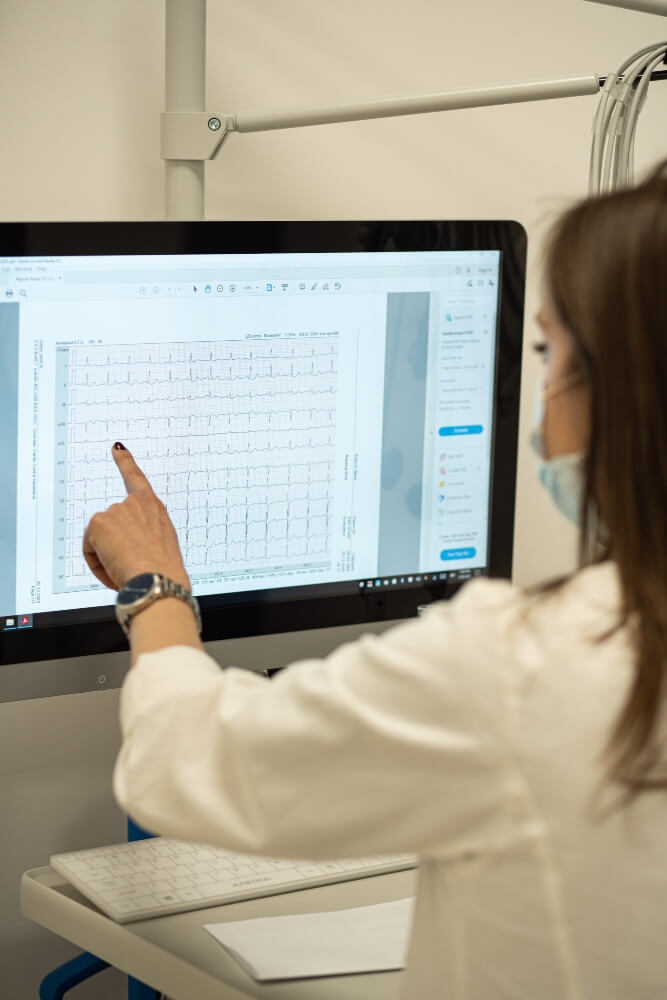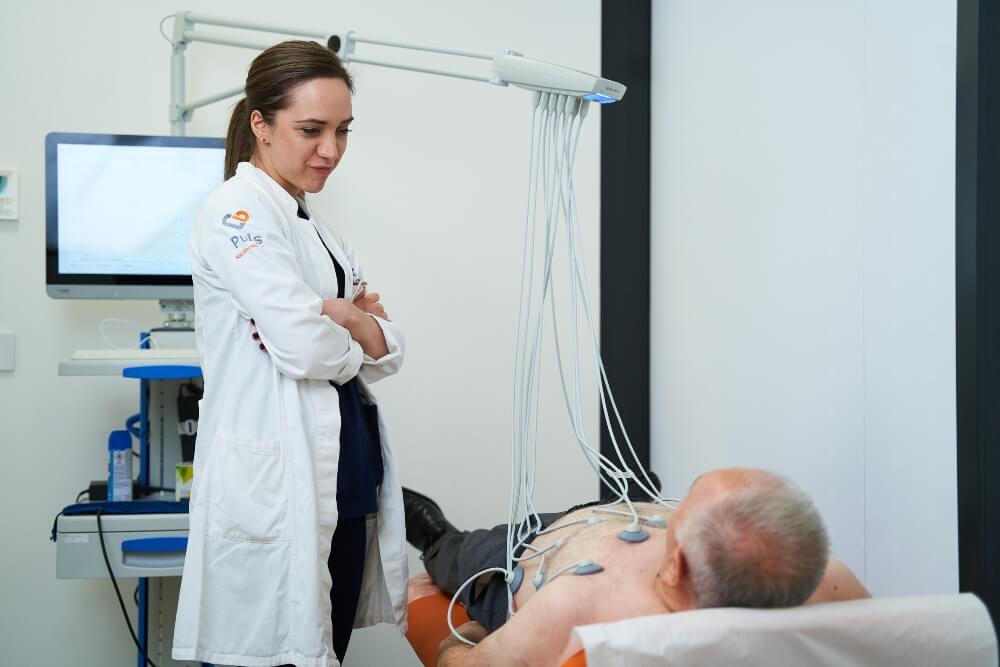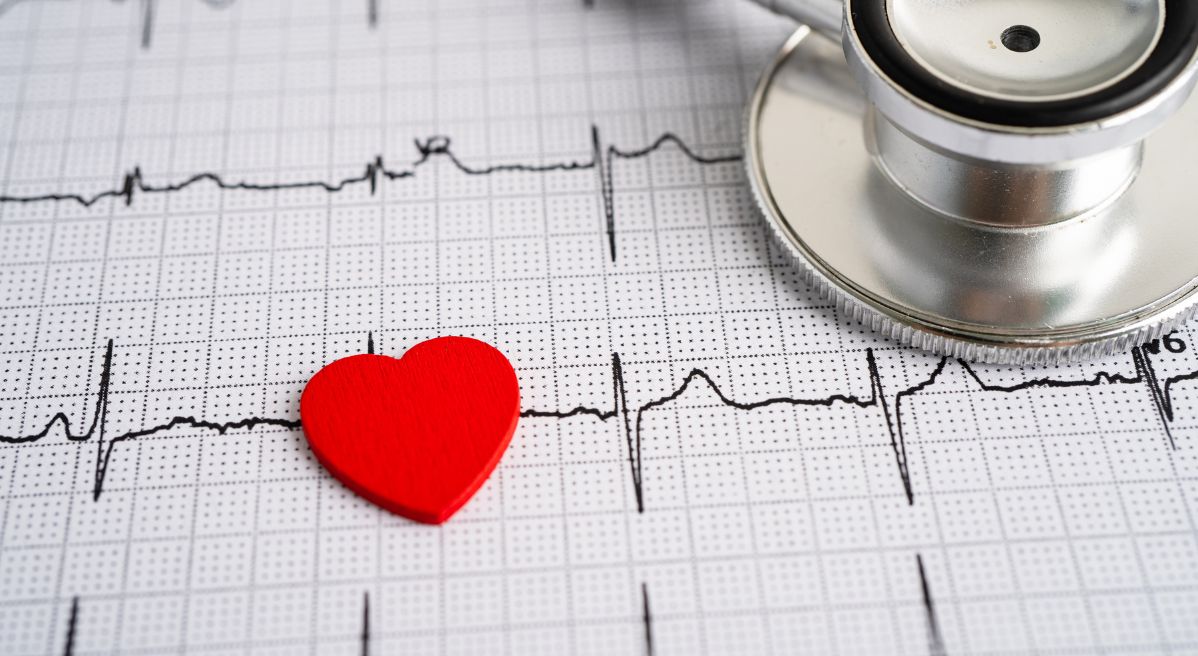An enormous number of people worldwide, specifically over 60 million, have been diagnosed with heart failure. This is one of the very dangerous and potentially fatal cardiac conditions, often discovered in later stages when treatment becomes challenging and usually lifelong.
Pulse Cardiology Center is actively working on raising awareness and educating people about heart diseases, and we strive to bring you closer to the symptoms indicating the need for a cardiology examination in every opportunity.
Only 3% of people discover heart failure in its early stages when symptoms may not be obvious or may not exist at all. By attending preventive check-ups, you are taking the most crucial step in fighting for your own health, as it increases the chance of detecting any existing illness early and makes the treatment process easier and more effective.
What is heart failure?

Heart failure, or cardiac insufficiency, refers to the presence of a problem with the heart muscle that prevents it from pumping blood through the body as it should. As a result, an insufficient amount of oxygen reaches certain parts of the body, while the body is unable to eliminate metabolic byproducts, leading to fluid retention, particularly in the lungs.
In individuals with a healthy heart, the amount of blood ejected from the chambers with each heartbeat is approximately 50%, whereas in those with heart failure, it is significantly lower.
In this condition, it is not necessary for the entire heart to be affected; it can involve only one chamber.
Types of heart failure
Depending on which part of the heart is affected and experiencing weakness, there are several types:
- Left-sided heart failure – characterized by fluid accumulation and shortness of breath
- Right-sided heart failure – fluid accumulates in the abdomen, legs, and joints
- Systolic heart failure – the left ventricle cannot contract effectively
- Diastolic heart failure – the left ventricle of the heart cannot relax properly and fully fill
What are the symptoms of heart failure?
In the early stages of the disease, there are hardly any symptoms. The only way to detect the disease at such an early stage is through preventive screenings.
As the disease progresses and becomes more severe, the following symptoms commonly appear:
- Shortness of breath and difficulty breathing
- Feeling tired and weak
- Fatigue and drowsiness
- Coughing and wheezing, sometimes even coughing up blood
- Swelling of joints, feet, and legs below the knees
- Swelling in the abdominal area
- Changes in weight, sudden weight loss or weight gain
- Frequent urination at night
- Difficulties in daily functioning, depression, poor concentration
- Chest pain
The frequency, intensity, and timing of these symptoms depend on the stage of the disease.
There is a classification called the NYHA classification of the disease:
- Class I – the person has no symptoms or limitations during physical activity.
- Class II – some limitations occur during physical activity, the person becomes tired more quickly, experiences shortness of breath, but feels well at rest.
- Class III – even mild regular activities lead to the manifestation of symptoms, but symptoms are absent at rest.
- Class IV – symptoms of heart failure occur at rest and worsen with any exertion.
How is heart failure diagnosed?
Heart failure, or cardiac insufficiency, is diagnosed and treated by a cardiologist. They may recommend one or more of the following tests:
- Electrocardiogram (ECG): This non-invasive method records the electrical activity of the heart.
- Blood tests: In addition to a complete blood count, specific values such as sodium, potassium, creatinine, albumin, liver enzymes, and thyroid hormone levels are important indicators.
- Cardiac and lung CT scan: This painless and non-invasive imaging method provides highly detailed images of the heart and lungs.
- Echocardiogram: This harmless and non-invasive ultrasound examination provides images of the heart and lungs and has no contraindications.
- Stress test: This non-invasive method assesses the impact of physical activity or stress on the heart’s function.
- MSCT coronary angiography: This diagnostic method uses an MSCT scanner to visualize the arteries supplying blood to the heart.
- Cardiac catheterization: This procedure involves inserting a catheter into veins and arteries for diagnostic purposes or interventions.
In addition, during a cardiology examination, before any further tests are recommended, you can expect a detailed discussion, personal and family medical history, and conversation about symptoms, their intensity, timing, and more.
It is important to choose a cardiologist you trust. Take a look at our team, composed of renowned experts in the fields of cardiology, radiology, vascular surgery, and neurology. You cannot go wrong with choosing one of our doctors.
What does the treatment of heart failure look like
The treatment of heart failure may involve the use of medications or specific interventions if medications alone cannot control the disease. Implantation of ventricular devices or heart transplantation are solutions needed for more severe patients for whom medications are not sufficient in battling this condition. Due to the disease often being detected at a later stage, patients usually require lifelong treatment.
However, if a person follows the advice of the cardiologist, takes medication regularly, and monitors their condition, their lifespan does not necessarily have to be shortened. Support from both doctors and family is crucial for patients with heart failure. Pulse Cardiology Center is not only focused on diagnosis and treatment but also on providing support and education to patients and their loved ones about the nature of the disease and recommended behaviors and activities that can improve the lives of those affected.

Complications that can arise from heart failure
When the function of the heart is compromised, the entire body is affected, and the consequences are particularly noticeable in the kidneys, liver, and lungs.
Insufficient oxygen supply to the kidneys can impair their function. Problems with blood circulation can also affect the heart’s rhythm, leading to arrhythmias. Additionally, the accumulation of fluid can jeopardize liver function.
Triggers that contribute to worsening heart failure
High blood pressure and coronary artery disease can significantly weaken and damage the heart muscle, leading to heart failure.
In addition, several other conditions can act as triggers, accelerating and exacerbating the disease:
- Untreated diabetes
- Anemia
- Thyroid problems
- Respiratory infections
- Asthma
- Kidney problems
- Pregnancy
- Exposure to stress
- Unhealthy lifestyle – smoking, excessive alcohol consumption, poor diet
Prevention of heart failure
Lifestyle, diet, and physical activity play a crucial role in preventing heart-related conditions. By striving to be active every day and avoiding alcohol, cigarettes, and unhealthy food, our chances of avoiding cardiovascular diseases are significantly increased!
It is important to note that other diseases and conditions can contribute to the worsening of heart failure in patients, especially if left untreated or if there is a deviation from the treatment plan. By effectively managing these conditions, they should not lead to a deterioration of the situation or further weakening of the heart muscle. Let’s not forget that preventive check-ups are essential if we want to take care of ourselves!
Preventive check-ups, even when we have no symptoms, are the best way to detect any potential illness in a timely manner. We offer numerous benefits in the form of examination packages tailored to specific target groups. This allows you to have the most important tests done in one place, during a single visit, providing you with a comprehensive assessment of your heart health.
Many cardiovascular problems diagnosed early can be easily treated and controlled. We are equipped to perform all necessary interventions for the treatment of cardiovascular diseases. From comprehensive diagnostics to treatment and monitoring, we offer everything in one place and as quickly as possible.
If you seek dedication and the best care, schedule an appointment with us!





